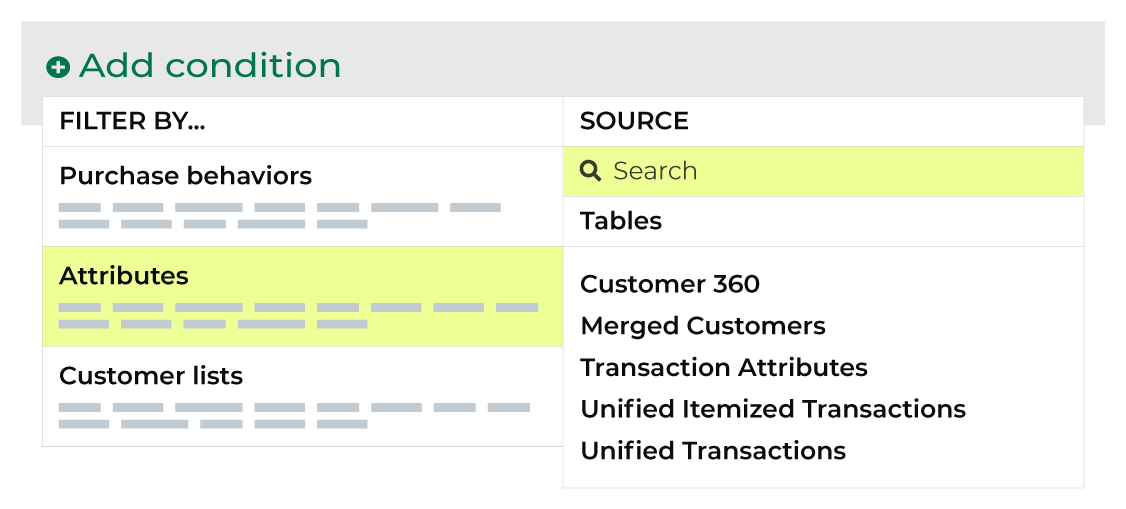Purchase channels¶
A purchase channel is the channel in which a customer makes a transaction. For example: in-store or online.
Examples¶
The following topics contain examples of using purchase channels:
Use in segments¶
You can add purchase channel attributes to a segment from the Segment Editor. Click Add condition, and then choose Attributes.

Enter “channel” into the search feature to filter the list of available attributes. Choose first order purchase channel, second order purchase channel, or latest order purchase channel to add the attribute to a segment. Select an operator, and then finish defining the conditions for how this attribute should be applied to the segment.
Available operators¶
The following table lists the operators that are available to this attribute.
Note
This attribute has a string data type. All string data types share the same set of operators. Recommended operators for this attribute are identified with “ More useful” and operators with more limited use cases are identified with “ Less useful”.
Operator |
Description |
|---|---|
contains |
More useful Returns customer records with values that match a string of characters. |
does not contain |
Returns customer records with values that do not match a string of characters. |
ends with |
Returns customer records with values that end with the specified characters. |
is empty |
Returns customer records that do not have a value in this field. |
is exactly |
More useful Returns all customer records with values that match the specified characters. |
is not empty |
Returns customer records that have a value in this field. |
is not exactly |
Returns customer records that do not match the specified characters. |
starts with |
Returns customer records that start with the specified characters. |